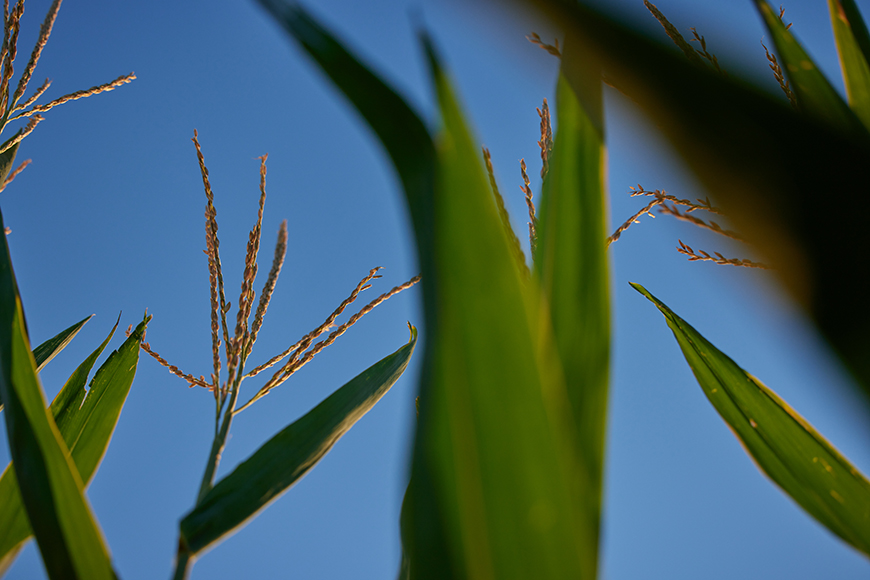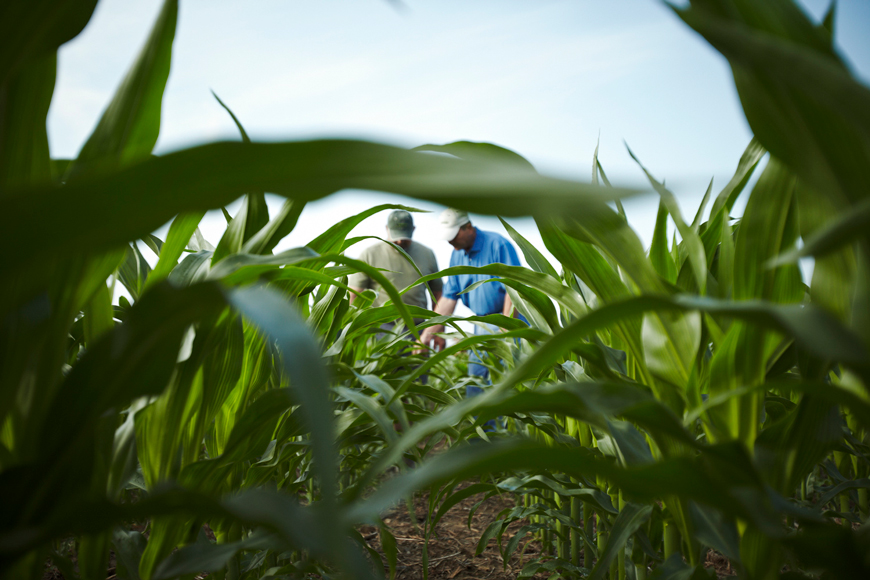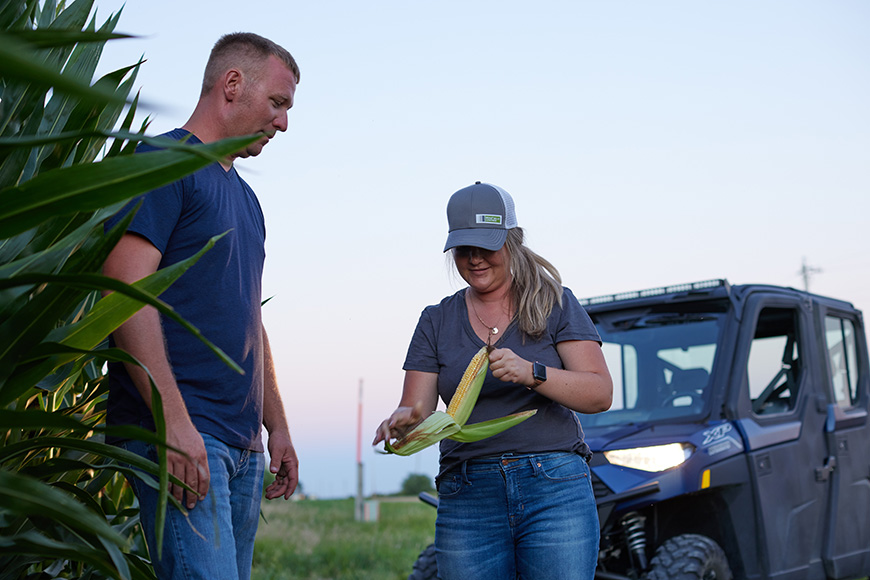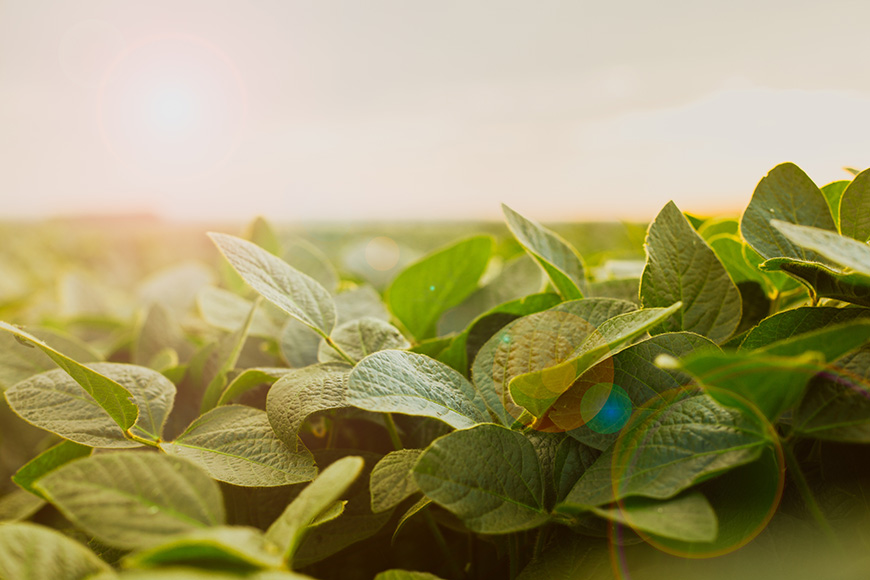Defining Biologicals In Agriculture: A Comprehensive Overview

New innovations have been racing to market as demand for and interest in biological crop inputs skyrocket. This speed of development, however, can leave important details getting lost in translation. Here, you’ll find clear definitions for biologicals, explanations for how they work and an exploration of how they are used in crop production systems.
What are biologicals?
“Biologicals” is a term often used broadly in reference to bio-based products used in crop production. To be more specific, biologicals are one of three subcategories that make up this market, along with biostimulants and plant growth regulators (PGRs).
Biologicals are living organisms or microbes applied to a field of crops to perform a certain function. They can be used for a wide variety of purposes, from enhancing nutrient availability and plant processes to protecting crops from pests and diseases.
Unlike biologicals, biostimulants are not living organisms. They are extracts or proteins derived from a biological product. These products are typically used to trigger plant responses, enhance performance or help mitigate in-season stresses.
PGRs are biochemicals or hormones that are already naturally made and used in plants. By applying additional PGRs, you can further enhance natural processes to help boost crop performance.
How do biologicals work?
There are many different modes of action and functions a biological product can provide, varying by product category and formulation. Broadly speaking, true biologicals, or living organisms, help populate beneficial microbial communities to enhance desired activity.
Soil bacteria work like microscopic jackhammers, continually breaking down insoluble nutrients and ions into their free forms that can be used by plants. Synthetic fertilizers on their own are only plant available for a certain amount of time before they get tied up in the soil. Bacteria help keep them available for a longer period of time, making a healthy soil microbiome essential. Biological products can help maintain that microbiome and support activity.
Why would a soil system need additional beneficial bacteria? Any time the soil profile is disturbed, the soil biome or “home” for the bacteria is negatively impacted and needs time to rebuild. Practices like tillage, monocropping, pesticide applications and synthetic fertilizer applications can all negatively impact the soil biome.
Biostimulants work differently, and there are many ways they can impact plant performance. Let’s look at an example. YieldON™, a biostimulant from Syngenta, is a combination of extracts from three plant species: fucaceae, poaceae and chenopodiaceae. This formulation helps stimulate cell division in developing grain, which can result in bigger and heavier seeds that can store more plant energy that can become yield.
Another example is Voyagro® biostimulant. It links potassium with amino acids and peptides to aid in the movement of product within the plant. It’s designed to help drive yield potential on highly managed corn with less than adequate rainfall.
Finally, PGRs boost levels of naturally occurring hormones to drive a greater plant response. It’s important to note though, there can certainly be too much of a good thing when it comes to PGRs so finding optimal ratios of hormones for the proper growth stage is essential.
Ascend2® PGR, for example, contains a ratio optimal for in-furrow corn that’s dominant in auxin. Meanwhile, it’s foliar counterpart, Ascend® SL PGR, is cytokinin dominant with less gibberellic acid and auxin.
Are biologicals effective?
In the right situations, yes, biologicals are effective. However, it’s important to understand that there is no silver bullet solution in the biologicals market today. In other words, no product works 100% of the time. Time and placement are key in determining crop impact.
Work with your local ag input retailer to determine which biologicals could work best for each field, depending on its unique conditions, management style and more.
What is the role of biologicals in crop management?
Biologicals won’t replace chemical crop protection products or synthetic fertilizers altogether. Instead, they complement the inputs and provide added value. Plus, they are an effective element of integrated pest management strategies and can provide additional modes of action and tools to help minimize pest resistance.
Biologicals tend to be best fit for highly managed acres with minimal limiting factors. They’re best for unlocking that top-end yield potential when most other options have been employed. If you try to enhance plant processes without a strong agronomic base, you probably won’t get the results you’re looking for.
How should I choose a biological product?
Choosing a biological product to invest in can be overwhelming with the hundreds of choices on the market. Fortunately, we created the WinField® United BioVerified™ designation to help simplify the process and give you a sound place to start.
Biological products receive the designation when they reach qualifying thresholds in four key criteria: uniqueness, agronomics, operational ease and economics. However, products on this list aren’t the only ones with potential. There may be other options specifically designed for the crop and situation you’re facing. When deciding between biological options, we recommend considering these questions:
1. What is the category? Biological, biostimulant or plant growth regulator?
2. Does it have a mode of action? How and where does it work? It’s critically important to understand how, where and when it works so you can use it in the right scenarios.
3. What is the geography and placement? Where has it performed best? What type of acres does it succeed on?
4. What are limitations? Do certain plant physiology, environmental or operational factors impact performance?
5. Does it have data to support it? We see plenty of biological products come through with data that is limited or irrelevant to the specific crop or situation we’re looking to use it for.
If you’re unsure which products to choose or want to learn more about how to incorporate biologicals into your crop management system, contact your local WinField United retailer. They can help you make tailored product decisions and provide additional detail, placement recommendations and performance data on biological products.
© 2024 WinField United. Important: Before use always read and follow label instructions. Crop performance is dependent on several factors many of which are beyond the control of WinField United, including without limitation, soil type, pest pressures, agronomic practices and weather conditions. Growers are encouraged to consider data from multiple locations, over multiple years and to be mindful of how such agronomic conditions could impact results. Ascend, Ascend2, BioVerified, Voyagro and WinField are trademarks of WinField United. All other trademarks are the property of their respective owners.





